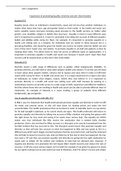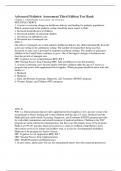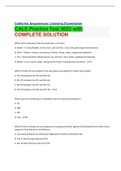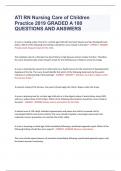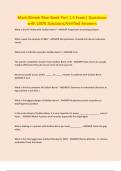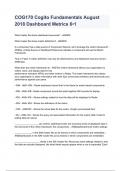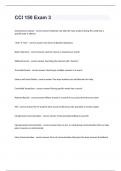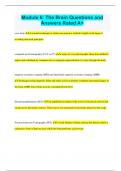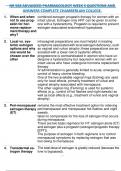Other
unit 5 meeting individual care and support needs health and social care level 3 Task 1
- Course
- Institution
unit 5 meeting individual care and support need health and social care level 3. This assignment includes P1, P2, P3, P4, P5, M1, M2, M3, M4, D1, and D2. I achieved distinction* for this assignment, you can use this assignment as a guide to achieving the grade that you are aiming for as it covers th...
[Show more]
